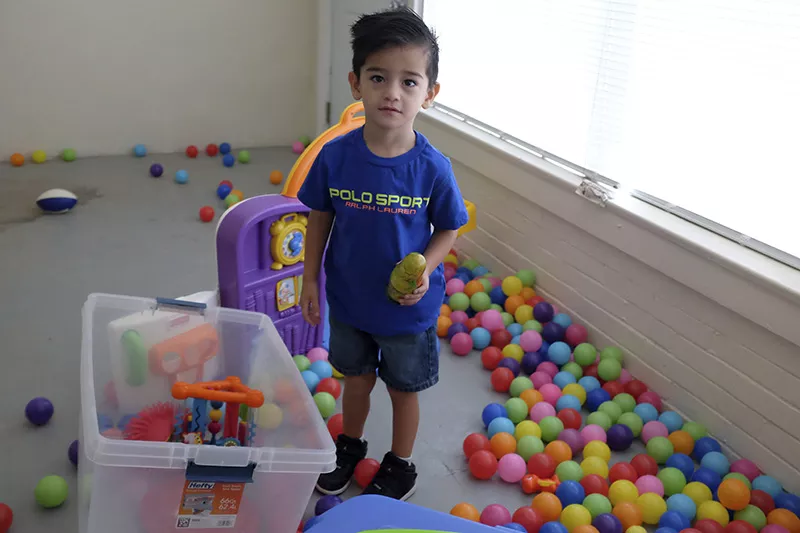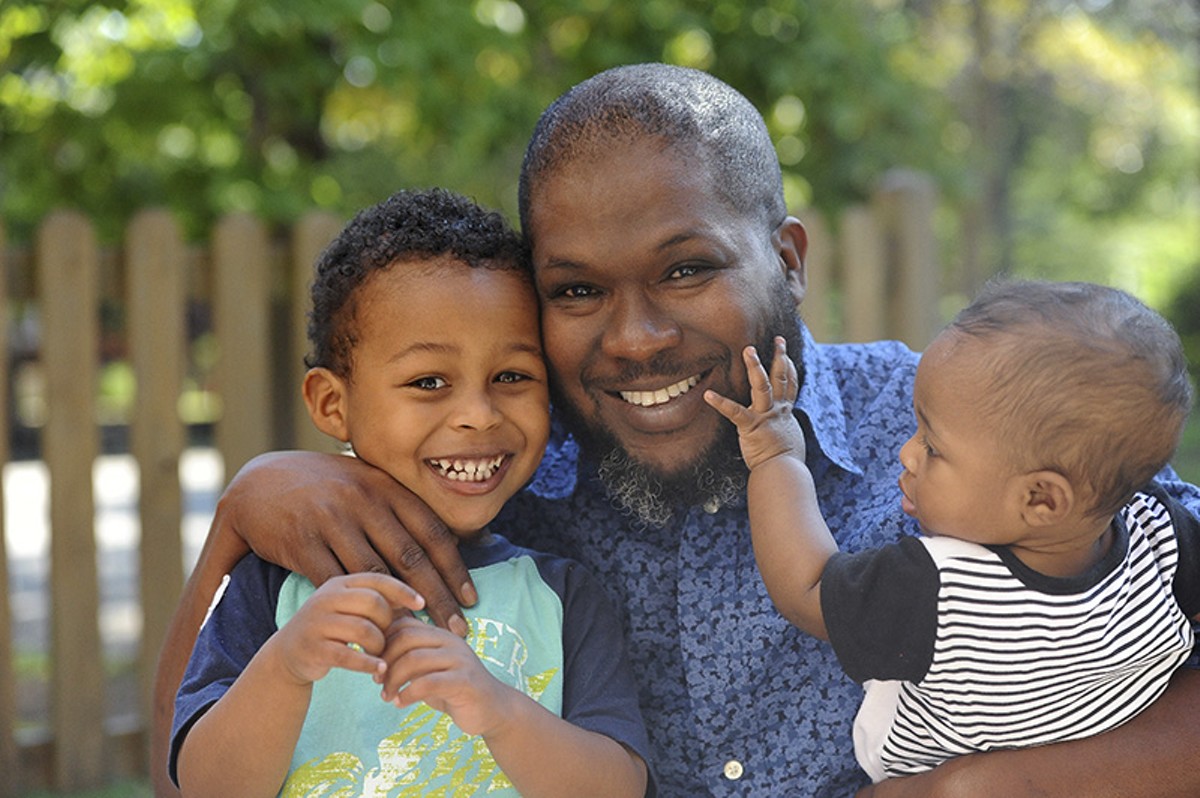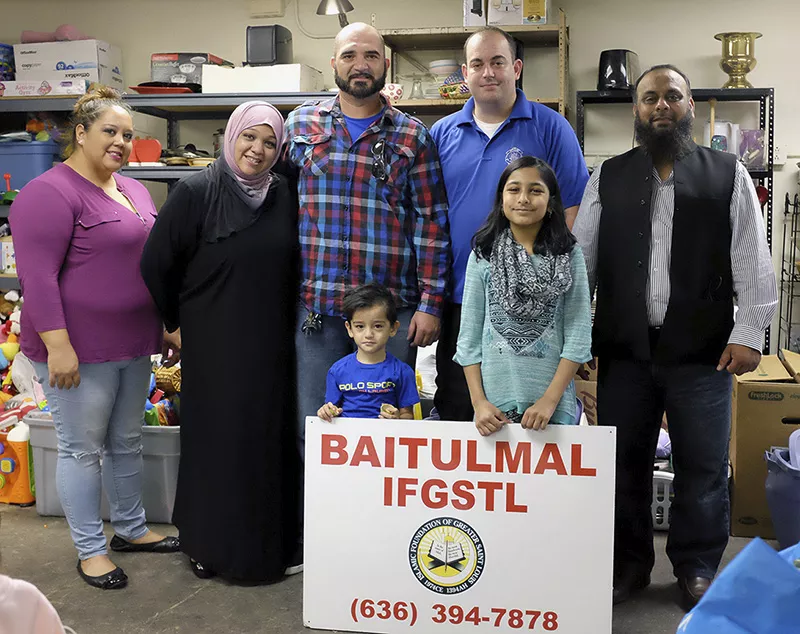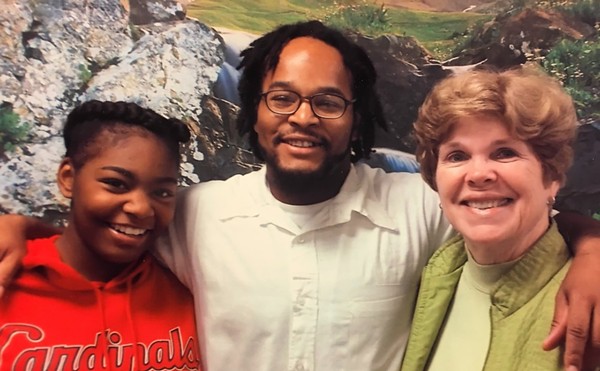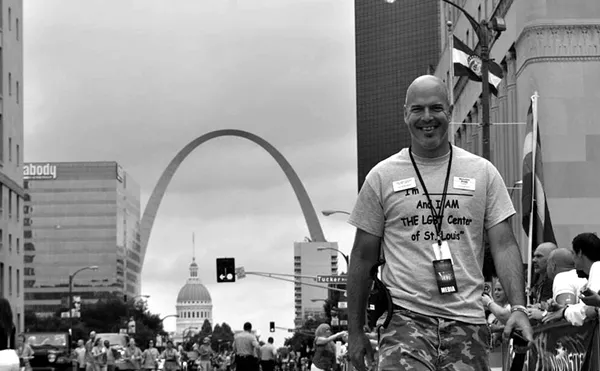The warehouse is not just full of goods. House of Goods is a hub, a meeting place for an exchange: of needs and vulnerabilities, of information and strands of hope, of language and religion, of stories and frustrations.
There's that saying about how you can either give a man fish or teach him how to fish (he's much better off with the last one). Like so many other parables, a version of it exists in Islam, too: The Prophet Mohammad has a beggar bring him his only two possessions, a bowl and a scrap of cloth, and sells them. He gives the beggar the two dirhams from the sale — one for food, and one for an axe — and instructs the man to gather firewood to sell it. The man earned ten dirhams over the next two weeks, enough to buy clothing and food.
A similar mentality runs through Baitulmal as well. A dresser or a bag of rice or baby clothes will satisfy an immediate material need, but the larger challenge is helping new arrivals read the cultural, bureaucratic, social and economic map that will allow them to, eventually, provide those things for themselves.
On August 31, the U.S. reached its goal of admitting 10,000 Syrian refugees this fiscal year, which ends September 30. As of the beginning of this month, a total of 313 of them have settled in Missouri, with 218 of those in St. Louis.
Besides the Syrians, the city itself has taken in an additional 348 refugees in the last eleven months: Afghanis, Bhutanis, Burmese, Colombians, Eritreans, Ethiopians, Iranians, Iraqis, Congolese and one refugee each from Cuba and Pakistan.
That's a lot of people to help, with many different needs, and House of Goods made a critical decision. Just one year after moving into the warehouse, the Islamic Foundation's board agreed to purchase a larger warehouse at an industrial storefront at 5911 Southwest Avenue, just off Hampton Avenue. The space is almost double the size of the old warehouse, clocking in at 3,500 square feet.
The financial commitment wasn't an easy one, says Gamut-Socoro — after all, they're not making a profit and bills need to be paid. Bijedic says the asking price of the building was around $150,000.
The hard work of transporting goods from the old Baitulmal to the new one took place over Labor Day weekend. The grand opening was slated for October 16, but as always when it comes to large projects, there's been a hang-up: After passing inspections and thinking all was smooth sailing, they found out from the city on September 9 that they needed a different zoning classification in order to move in, Bijedic says.
And that, of course, involves a hearing. It's been scheduled for October 13, just three days before they'd planned to open their new doors.
Bijedic immediately spread the world to other community organizations House of Goods has close ties with. "They said that they will came to the hearing for support," he says. "Some of them were shocked when I told them about the issues."
In the meantime, employees and volunteers are hard at work fixing up the new space and installing the shelves that will hold the free wares. In the meantime, the old warehouse is still open on the weekends for receiving donations. After all, there's always people to help — red tape or no.
"I'm not going to stop helping people," says Bijedic. "I will find another way — there is a lot people that are in need."
